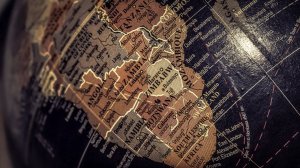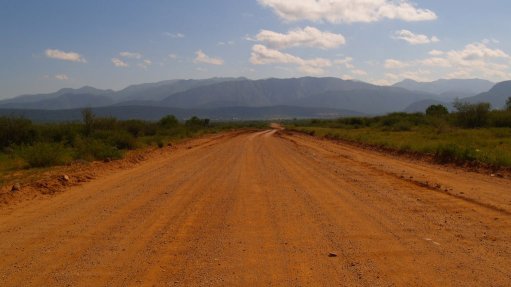Current global volatility may spark stronger intra-African trade

Pangea-Risk experts discuss Africa's credit outlook amid global trade disruption
As Africa navigates the outcomes of key elections in 2024 and 2025, as well as geopolitical realignments on the back of President Donald Trump’s re-election, some caution over Africa’s credit outlook and ability to service debt is well placed.
That said, African borrowers are showing signs of resilience that could bode well for mitigating these risks, says specialist intelligence advisory Pangea-Risk in its latest outlook publication focused on Africa’s credit outlook amid political change globally.
Under Trump’s revived “America First” doctrine, US trade will likely become a tool of coercive diplomacy – offering capital, market access and infrastructure development opportunities to compliant States.
Yet, those willing to adjust to new trade dynamics will gain liquidity lifelines, either through the US or its counterparts.
In turn, elections across Africa present credit inflection risks. Where transitions expose fiscal misreporting or trigger populist divergence from International Monetary Fund terms, sovereign downgrades and market exclusion are likely to follow.
Yet, credible polls, paired with fiscal reform offer the prospect of rating stabilisation and improved access to concessional and market-based financing, says climate-aligned investor Acre Impact Capital founding partner Faisal Khan as a contributing author to the outlook.
Despite prevailing global macroeconomic uncertainty, market sentiment indicates that default risk across the continent has reduced from the peaks in 2022 and 2023.
Changes in global trade dynamics will present challenges, but also considerable opportunities which African nations can leverage to help secure their long-term success.
Pangea-Risk forecasting head Bilal Bassiouni says Africa’s credit outlook for this year will be shaped by a confluence of political shifts both within the continent and in the global arena.
The relationship between political shifts and credit risk is multi-faceted, with election cycles, policy changes and external geopolitical pressures influencing debt sustainability, market confidence, and sovereign borrowing costs.
As geopolitical realignments unfold, changes in US leadership and the US’s consequent evolving trade policy stances, coupled with the outcomes of key elections across Africa, will impact sovereign risk, credit ratings, and investor sentiment.
Domestically, the 2024 election outcomes in key African economies such as South Africa, Ghana and Senegal, as well as the 2025 ballots for Cameroon, Côte d'Ivoire, Gabon and Tanzania, for example, will determine governance continuity, fiscal stability, and reform agendas in these critical markets.
Pangaea-Risk senior analyst Zaynab Hoosen says understanding the ramifications of these political developments is essential for policymakers, financial institutions, and investors navigating Africa’s credit markets.
“The past decade has demonstrated how political uncertainty can exacerbate fiscal challenges, deter investment, and lead to credit rating downgrades. In 2025, as new administrations take office and policy directions shift, these dynamics will play a decisive role in Africa’s economic trajectory and credit outlook,” she adds.
DIVERSIFYING TRADE
Although the US holds only a portion of Africa’s sovereign debt, trade dynamics affecting Africa’s export earnings, currency stability and fiscal revenues can influence debt repayment capacity and creditworthiness.
By prioritising tariffs and bilateral negotiations over multilateral agreements, the US has departed from long-standing trade norms that emphasised cooperation and reciprocity, Khan says.
This strategic shift aims to protect US industries and reduce US trade deficits, but also serves as a tool for securing broader geopolitical concessions from US counterparts.
As a result, however, changes in the volume and structure of trade between Africa and the US will influence debt sustainability, with secondary impacts on borrowing conditions, sovereign risk, and access to financing.
Yet, African countries are already seeking to diversify trade relations and are actively pursuing greater regional integration through initiatives such as the African Continental Free Trade Area (AfCFTA).
This agreement, along with growing interest from Gulf region investors, signals a proactive shift towards trade and investment diversification.
Such strategic realignments have the potential to enhance Africa's economic robustness, fostering a more competitive and dynamic trade ecosystem and providing some protections for servicing debt.
However, the evolving nature of global economic policies necessitates a deeper understanding of how these changes could influence Africa’s credit landscape in the years ahead, Khan warns.
OTHER CONSIDERATIONS
Khan, Bassiouni and Hoosen agree that the US remains dependent on other countries to secure access to critical minerals, in which Africa has a key role to play.
The Trump administration is prioritising supply chain realignment and security over downstream value addition, ensuring that raw materials are shipped directly to the US and allied processing hubs. The Lobito Corridor, for example, serves as a key mechanism for this strategy, reducing African reliance on Chinese-owned ports and processing facilities while keeping refining and manufacturing operations outside the continent.
A key risk remains China’s entrenched position, holding more than $160-billion in African loans and control of key logistics and industrial hubs. Countries such as Angola and Nigeria may reject US demands for strict trade alignment, limited technology transfer and exclusive investment rights for US firms.
However, countries securing US investment and concessional loans while reducing reliance on Eurobonds and high-cost Chinese loans, such as Kenya, Ghana and Zambia, could ease debt pressures and improve creditworthiness.
If US trade deals require realignment away from China and Europe, economies reliant on Chinese-backed exports may face short-term revenue losses and credit rating volatility.
A possible scenario that could play out is the US pursuing selective engagement with countries that align with US economic and strategic priorities, including those that offer critical minerals.
However, should the US markedly reduce its trade and investment engagement with Africa as it pivots to secure strategic priorities, it could increase borrowing costs and financial risks for emerging markets.
African countries will need to look elsewhere to secure trade deals and investments and strengthen economic ties with China, the EU and Gulf states.
Trump’s aggressive approach to tariffs not only disrupts global trade flows but also sets in motion a range of broader economic consequences that could be acutely felt in emerging markets.
“Africa needs to adapt to a US that is less open to bilaterial trade and have a more deal-first transactional posture,” Bassiouni says.
Hoosen adds that African counties also have to continue managing sovereign debt proactively to access new credit markets.
The experts agree that the current volatility could be a push factor toward greater economic cooperation in Africa, including to make the AfCFTA work and to rely less on external partners, towards resilience amid these shakeups in the global market.
Article Enquiry
Email Article
Save Article
Feedback
To advertise email advertising@creamermedia.co.za or click here
Press Office
Announcements
What's On
Subscribe to improve your user experience...
Option 1 (equivalent of R125 a month):
Receive a weekly copy of Creamer Media's Engineering News & Mining Weekly magazine
(print copy for those in South Africa and e-magazine for those outside of South Africa)
Receive daily email newsletters
Access to full search results
Access archive of magazine back copies
Access to Projects in Progress
Access to ONE Research Report of your choice in PDF format
Option 2 (equivalent of R375 a month):
All benefits from Option 1
PLUS
Access to Creamer Media's Research Channel Africa for ALL Research Reports, in PDF format, on various industrial and mining sectors
including Electricity; Water; Energy Transition; Hydrogen; Roads, Rail and Ports; Coal; Gold; Platinum; Battery Metals; etc.
Already a subscriber?
Forgotten your password?
Receive weekly copy of Creamer Media's Engineering News & Mining Weekly magazine (print copy for those in South Africa and e-magazine for those outside of South Africa)
➕
Recieve daily email newsletters
➕
Access to full search results
➕
Access archive of magazine back copies
➕
Access to Projects in Progress
➕
Access to ONE Research Report of your choice in PDF format
RESEARCH CHANNEL AFRICA
R4500 (equivalent of R375 a month)
SUBSCRIBEAll benefits from Option 1
➕
Access to Creamer Media's Research Channel Africa for ALL Research Reports on various industrial and mining sectors, in PDF format, including on:
Electricity
➕
Water
➕
Energy Transition
➕
Hydrogen
➕
Roads, Rail and Ports
➕
Coal
➕
Gold
➕
Platinum
➕
Battery Metals
➕
etc.
Receive all benefits from Option 1 or Option 2 delivered to numerous people at your company
➕
Multiple User names and Passwords for simultaneous log-ins
➕
Intranet integration access to all in your organisation



















